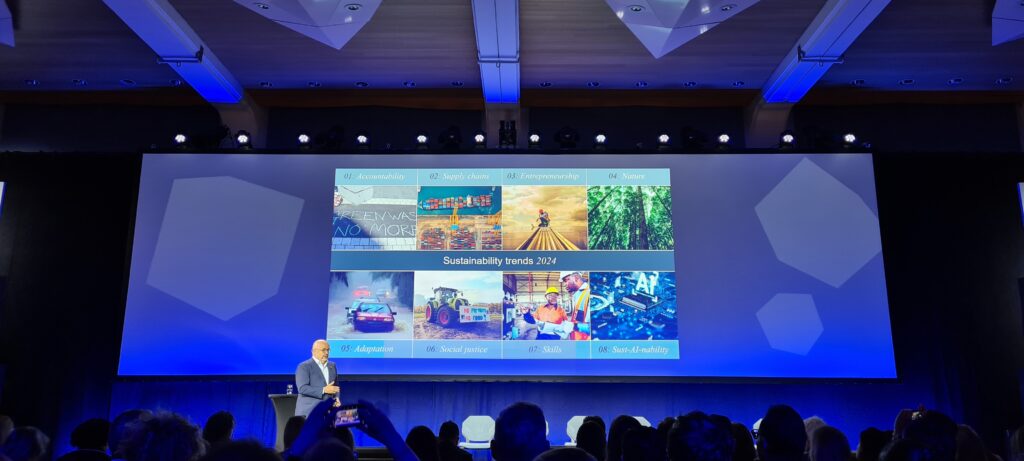




Together with more than 500 sustainability leaders from the most innovative companies across the world, the IBCSD (Indonesia Business Council for Sustainable Development) participated in the WBCSD Global Network Meeting on 22 April 2024 in Geneva and Liaison Delegate Meeting on 23-25 April 2024 in Montreux, Switzerland. This WBCSD-led annual event aims to share insights on the latest trends & developments on sustainability among businesses and build collaboration opportunities to take action on the interlinked global challenges: climate crisis, nature loss, and inequality.
Peter Bakker, WBCSD President & CEO, in his opening remarks at the Global Network Meeting emphasised that if we are in sustainability and particularly want to mobilise business, what matters most are climate, nature and inequality. Climate and nature crises will kill us if we do not take actions on the top of these crises. Meanwhile, the inequality will make us unable to act because we lose social cohesion and support in societies. Sustainability has a broad issues. Quite often, we are passionate in talking and debating about sustainability. But, the most challenging is how our sustainability actions lead to concrete impacts on the ground.
Accountability and innovation are central topics discussed in the Liaison Delegate Meeting 2024. On the former, demand for increased accountability and transparency has been increasing from stakeholders, including consumers. Business has to cope with growing various ESG disclosure frameworks that lead to mandatory and voluntary reporting. Transparency can be a catalyst for business transformation in sustainability. But the concern is that sustainability goes well beyond compliance. There is a concern that business burdens and efforts in doing compliance should not make them forget to do innovation.
Business innovations, solutions and collective actions are required to enable transformations to limit climate crisis, restore nature, and tackle inequality. However, a systemic transformation as raised in the Liaison Delegate Meeting requires a comprehensive change that include value chains, consumer behaviour, financial system and regulation change.